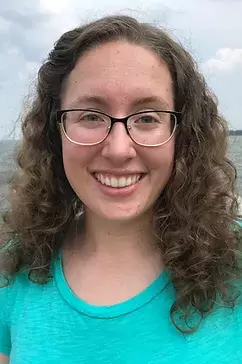Interview with Ariel Mitchell Williams
1. In "Her Reflection," you speak of how others wish to see those who came before us, in us, and cement those similarities in comments: “Who they need her to be. How can she be? She is herself.” How do we learn to carve a space for ourselves as individuals, separate from our family history?
What a question. I guess the answer is practice. And time. And grace. It is definitely a practice of carving, in that it is a long process where sometimes a little chip or two off of the giant stone weight of generational habits and expectations is all the space we can create. We are physical as well as spiritual beings, and sometimes, especially in the physical side of ourselves, it is impossible to separate ourselves from our family history. "Her Reflection" is about this seeming impossibility. I have a history of breast cancer in my family. This means I am statistically predisposed to a higher chance of contracting my own case. This means doctors will always be more cautious and suggest more screenings than the average woman with no family history of the disease. That is a part of my family history that I will never be separate from. What I can do is allow my experience to be my own. I am the protagonist of my own story, not my mother, or my grandmother, or my great grandmother before her. Even when choices and situations may feel decided, the decisions we each make in the moment are ours and we can teach ourselves to take a breath and look at the choices as our own. Be curious. Why am I making this decision? Is it because that's what my family does? Or is it because that's what I do? I hear it gets easier, but right now it's exhausting. But it is possible.
2. What is the dearest wisdom, or most meaningful and essential advice ever passed on to you from a female figure in your life?
This was the most difficult question for me in this list. There's been so much wisdom and advice that I have internalized. I think, in this moment, I will share what my mom often shared with me, "Listen to your body. Listen to yourself." My mom was a doubter and a realist. In most of our conversations her side of the dialogue was almost completely questions. Are you sure? Why? What about this? What about that? It was often as frustrating as it sounds and required me to often run defensive maneuvers instead of just being with her. But, in the end, the conversation would end in her urging me to listen, not to her, but to me. She'd assert complete faith in my ability to run my own life. Mom, against great odds, would always do that in her own life. It's how she caught her cancer. Be your own advocate. You are worth listening to.
3. In your piece, you speak of learning to acknowledge the body’s scars as a sign of continuing life. How do we brush aside false images of perfection often thrust onto women, and face and embrace our “mortal flaws” as they come to us in life?
This is a question I ask myself every day. I was recently listening to a podcast where they talked about our thoughts acting like people who walk the same pathways over and over until thought processes become well worn roads. It makes it very difficult to "brush aside" the very well worn paths of societal and self-inflicted comparisons of ourselves as women to the barrage of false images of perfection. The only solution I have been able to find is in the divine. We believe in a perfect Savior with a perfect divine parentage. And yet, in his perfected form, Jesus has scars. The nail prints in his hands and the wounds in his side are not only the way he cemented his perfection, but also how he offers us ours. Why would God erase scars? Why would we want to erase them? They are the very things that open us up to the empowering and life-altering power of the atonement. In order to change the narrative in my head, I constantly strive to reframe scars not as damage left from when I was hurt but as reminders of when I have grown. For me this would be impossible without the help of Christ and my Heavenly Parents. It is a huge amount of work to change the way you think. But like the Japanese art of Kintsugi, where gold not only fixes but highlights the brokenness of a piece of pottery, our flaws only make us more beautiful to the divine, because they show the space we have made for them and how we can become more like them.
Ariel Mitchell, playwright, hails from an island in the Chesapeake. BYU and NYU alumnus, New Musical Inc. 2017 New Voices Project Finalist, Dramatists Guild 2017 Baltimore Footlights Reading Series Feature, and storyteller to two inquisitive sons. Other plays include A Second Birth (THML Theatre Company 2019 NYC Premiere, Harold and Mimi Steinberg 2013 National Student Playwriting Award, 2013 David Mark Cohen Award, Samuel French publication), about an afghan girl who was raised as a boy, and The Shower Principle (2018 NY Winterfest), a two person experiment in the isolating existence that is new parenthood. For more see: https://jamitchell13.wixsite.com/playwright
